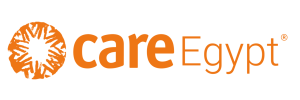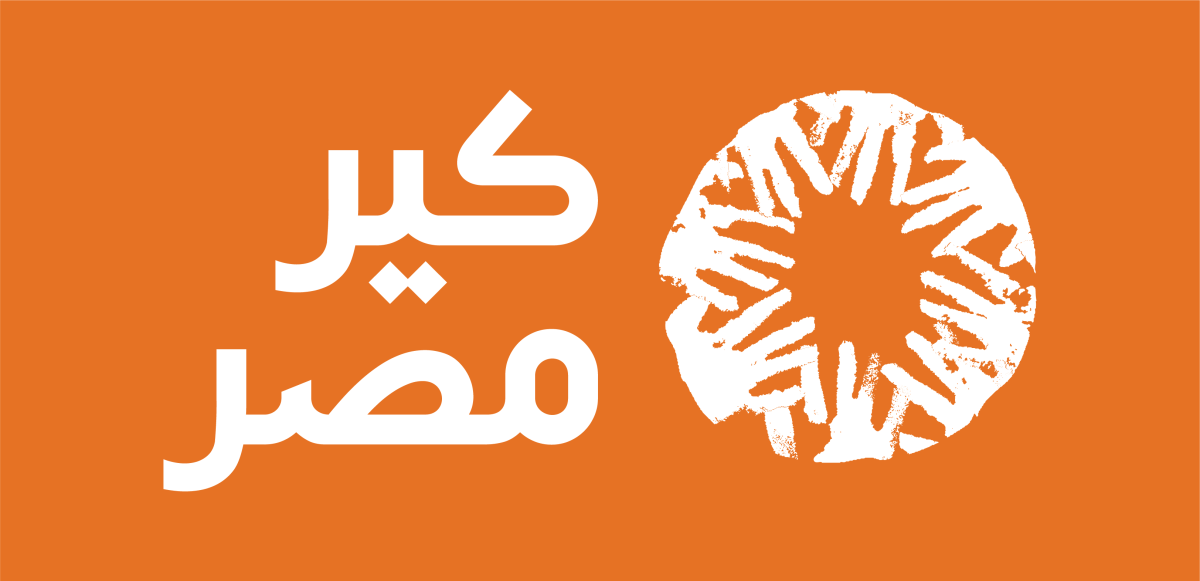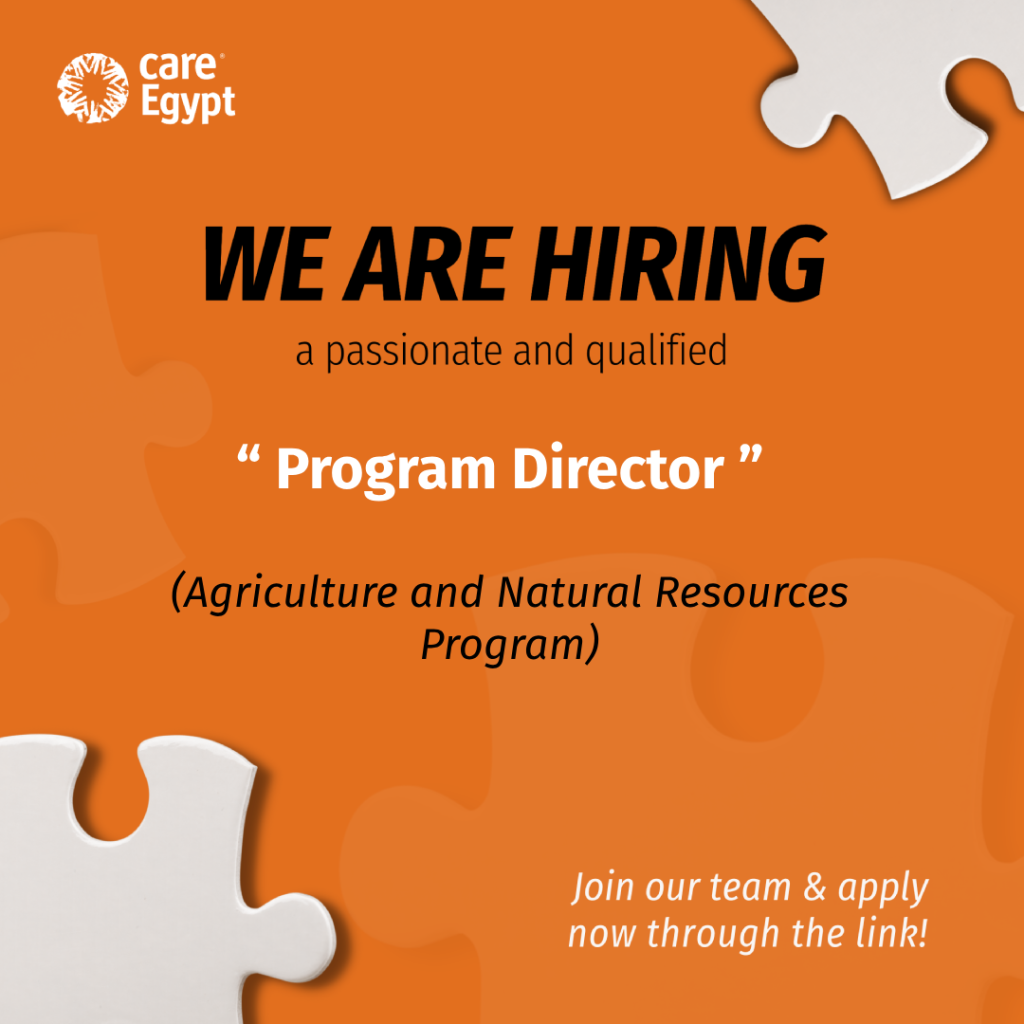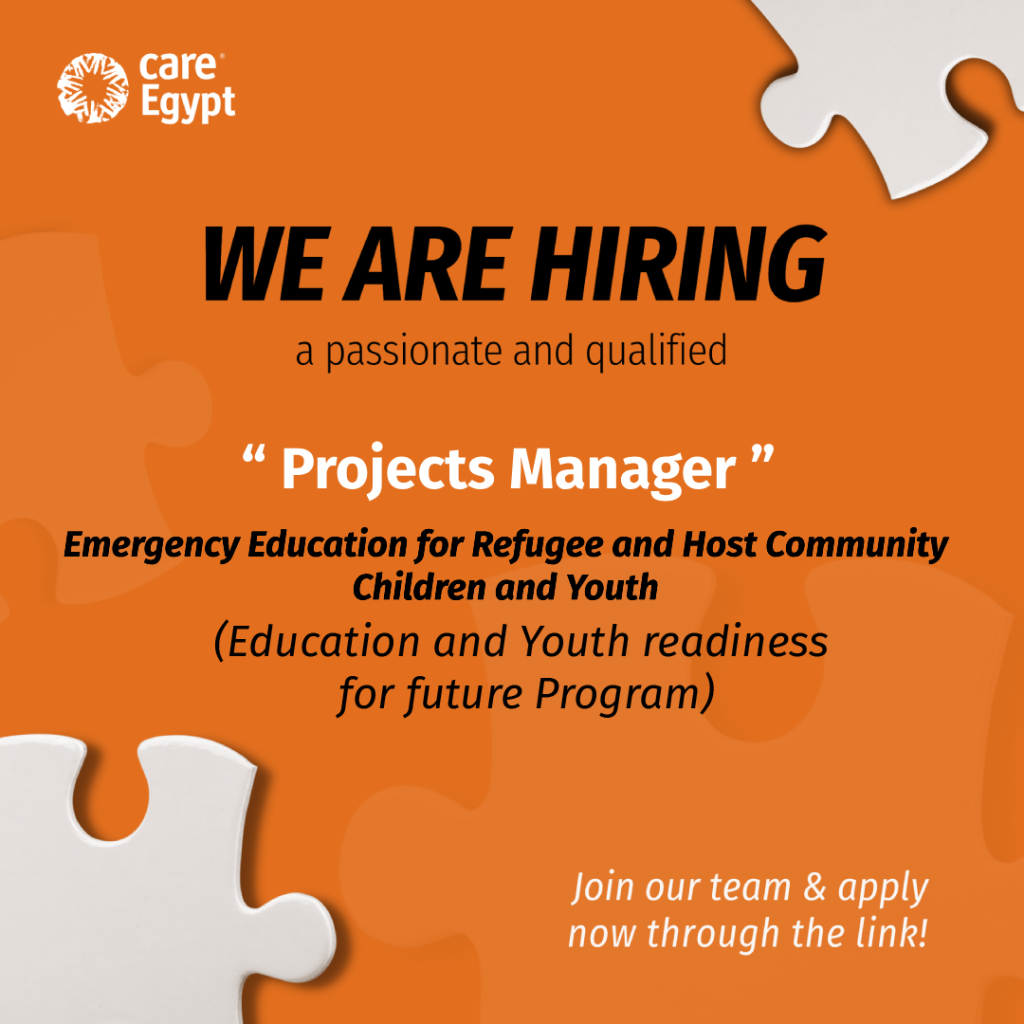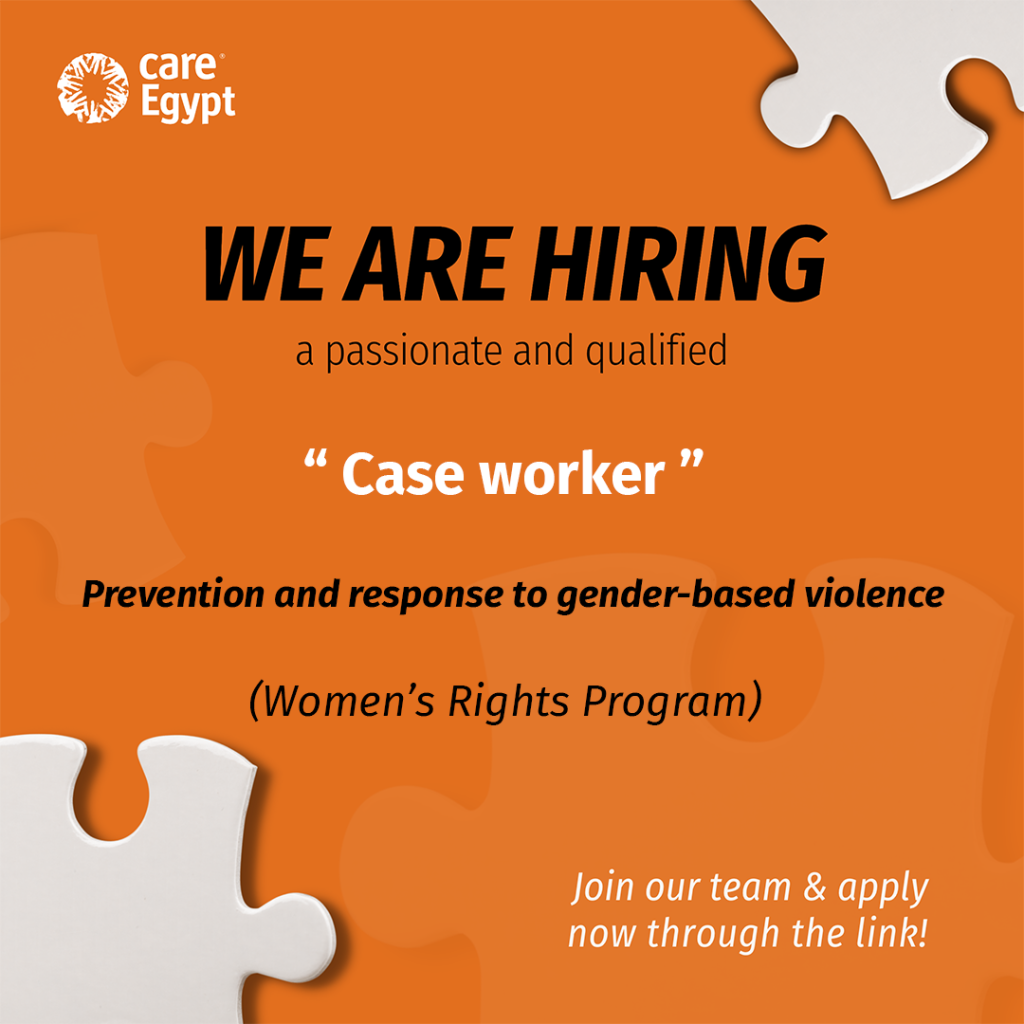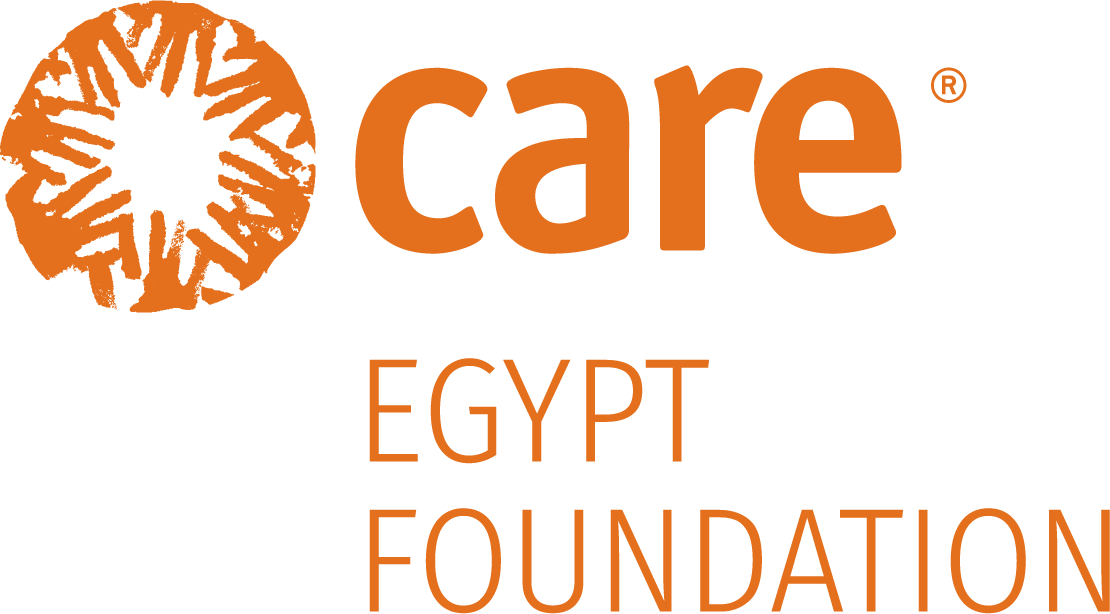مؤسسة كير مصر للتنمية:
مؤسسة كير مصر للتنمية هي مؤسسة أهلية مسجلة في الإدارة المركزية للجمعيات بوزارة التضامن الاجتماعي برقم “833 لسنة 2018” ويقع مقرها في 5 شارع أسماء فهمي – الدور الخامس (قطعة رقم 1 – المربع Y ) قسم 1 مدينة نصر، القاهرة، مصر، وتخضع المؤسسة لأحكام قانون تنظيم العمل الأهلي رقم 149 لسنة 2019.
تستند مؤسسة كير مصر للتنمية على إرث وخبرات كير الدولية في مصر منذ عام 1954، من خلال تصميم وتنفيذ وإدارة برامج ومشاريع تنموية تهدف إلى مساعدة المجتمعات المحلية الأكثر احتياجًا في مصر، من خلال بناء شراكات استراتيجية مع القطاع الحكومي والقطاع الخاص ومؤسسات المجتمع المدني، للمساعدة في تلبية الاحتياجات الأساسية وتحسين جودة ونوعية الحياة بشكل مستدام ومتسق مع الثقافة، والواقع، والسياق المحلي ،والوطني.
تركز المؤسسة تدخلاتها وتصمم برامجها في مجالات التمكين الاقتصادي والاجتماعي للمرأة المصرية، وتطوير وتحسين البيئة التعليمية، ودعم القطاع الزراعي وخاصة صغار المزارعين، وتحسين الأداء الحكومي ودعم عمليات بناء الثقة بين شركاء التنمية من خلال تطبيق أدوات ومنهجيات الحوكمة والمساءلة المجتمعية، وذلك من خلال استثمار الطاقات والأفكار وتبني المشاريع التي تتوافق مع تنمية وتحسين الظروف الاقتصادية والمعيشية لهذه المجتمعات للتعامل مع معالجة الأسباب الجذرية للفقر.
كما تلتزم المؤسسة بتعزيز دور المجتمع المدني المحلي من خلال إشراكه كشريك في جميع مشاريع المؤسسة بطريقة تضمن بناء قدراته وتمكينه من القيام بالدور التنموي المطلوب في خطط وبرامج التنمية القطاعية والجغرافية للحكومة.
تعمل المؤسسة على استخلاص أهم التجارب الدولية في جميع مجالات التنمية وعرضها في السياقين المحلي والوطني، بالإضافة إلى العمل على تسليط الضوء على التجارب المحلية ونشرها على المستوى العالمي، وذلك للاستفادة من التجارب العالمية وتقديم النماذج التنموية المصرية إلى المهتمين والفاعلين على المستوى العالمي.
اسم البرنامج: برنامج بناء قدرات منظمات المجتمع المدني في مصر
برنامج بناء قدرات منظمات المجتمع المدني في مصر يهدف إلى بناء القدرات المؤسسية لمنظمات المجتمع المدني المصري بحيث تصبح مؤثرة في مجالات التنمية وتستجيب لاحتياجات مجتمعها.
رؤية البرنامج: مجتمع مدني نابض بالحياة وديناميكي قادر علي تطبيق مداخل عمل فعالة وعلمية لتحقيق تغييرات مستدامة في حياة الناس
مشروع: بناء قدرات المنظمات غير الحكومية المصرية “ارتقاء
السياق:
يهدف مشروع “ارتقاء” لبناء قدرات 190 منظمة غير حكومية مصرية، ويتم تنفيذ البرنامج في 5 محافظات في مصر طبقا لاستراتيجيات عمل مؤسستي ساويرس وكير، حيث تحسين قدرة منظمات المجتمع المدني في مجال تخطيط وتنفيذ البرامج التنموية الفعالة القائمة على الأدلة العلمية بغرض تعظيم الأثر التنموي على المجتمعات المستهدفة من قبل الجمعيات الشريكة، وتسديد حاجات منظمات المجتمع المدني المستهدفة والعمل على خلق بيئة تمكينيه وتكاملية تدعم تلك المنظمات وتتيح لهم إمكانية التخطيط والتنفيذ لبرامج تنموية فعالة في المحافظات الخمس المستهدفة.
بنهاية سبتمبر 2025، يكون قد تم تعظيم تأثير البرامج المقدمة (لها صفة الاستدامة، والشرعية المجتمعية) من عدد 190 من المنظمات غير الحكومية عالية الأداء ((Hi-Per، والمنظمات غير الحكومية ذات الإمكانات العالية ((Hi-Po، والمنظمات غير الحكومية متوسطة الأداء (Med-Per)، والمنظمات غير الحكومية المصرية بشكل عام (النظام الإيكولوجي) في خمس محافظات مصرية.
كما سيسهم البرنامج بشكل كبير في دعم مجتمع مدني حيوي يتخذ من المجتمع شرعيته، ويعمل لخدمة المجتمعات المصرية الأكثر احتياجا وهشاشة.
الهدف العام للمهمة:
تهدف هذه الاستشارة إلى تصميم حقيبة تدريبية متكاملة حول العلامة التجارية والتسويق المؤسسي في سياق منظمات المجتمع المدني، بحيث تمكّن العاملين في هذه المنظمات من تطوير قدراتهم في بناء وتفعيل هوية مؤسسية متميزة، تعكس رسالتهم التنموية، وتعزز من حضورهم المجتمعي والتواصلي.
تستهدف الحقيبة تطوير معارف ومهارات المشاركين في المجالات التالية:
-
تصميم وتفعيل الهوية المؤسسية (Brand Identity) بما يشمل العناصر البصرية (الشعار، الألوان، الخطوط) والقيمية (الرؤية، الرسالة، القيم).
-
إعداد وتنفيذ خطط التسويق التنموي التي تتناسب مع أهداف المنظمات غير الربحية وتعزز الأثر المجتمعي.
-
التواصل الرقمي ومهارات السرد القصصي (Storytelling for Impact) كوسيلة لنقل الرسائل بشكل مؤثر وموثوق.
-
قياس أثر التسويق على السمعة والتمويل والشراكات، واستخدام نتائج القياس لتحسين الاستراتيجيات.
ينبغي أن تعكس الحقيبة خصوصية السياق المحلي، مع الاعتماد على مفاهيم معاصرة في التسويق الاجتماعي والتنموي، وإعداد المشاركين لإعادة نقل المحتوى لجمهورهم المستهدف بفعالية.
نطاق العمل
-
تنفيذ تحليل احتياجات تدريبي مختصر لتحديد أولويات التدريب والفئة المستهدفة.
-
تصميم محتوى الحقيبة التدريبية وفقًا للموضوع المطلوب (العلامة التجارية والتسويق في سياق المجتمع المدني)، ويتضمن:
-
إعداد أجندة تدريبية متكاملة.
-
إعداد دليل المدرب ودليل المتدرب.
-
إعداد العروض التقديمية (PowerPoint).
-
تطوير تمارين وأنشطة (ورقية ورقمية).
-
تصميم أدوات تقييم (Pre/Post Test، تقييم الجلسات، بنك أسئلة).
-
-
تضمين أدوات قابلة للتطبيق الرقمي (LMS أو Zoom).
-
تنفيذ برنامج تدريب مدربين (TOT) لمدة X أيام لتأهيل المشاركين على استخدام الحقيبة.
-
إعداد تقارير مهنية تغطي:
-
تحليل الاحتياج.
-
تنفيذ
-
التقرير النهائي وتوصيات التطبيق.
-
-
مراعاة المعايير التالية عند تصميم الحقيبة:
-
التدرج: ترتيب المحتويات والأنشطة التدريبية بشكل متسلسل لضمان استيعاب المشاركين للمحتوى والمهارات الأساسية قبل الانتقال إلى المهارات المتقدمة.
-
التمصير: جعل المحتوى مناسبًا للبيئة المحلية والثقافة المستهدفة من خلال تكييف المواد التدريبية والأساليب لتتوافق مع احتياجات المجتمع.
-
الحداثة: استخدام الأساليب والتقنيات الحديثة المستندة إلى أحدث الأبحاث والدراسات في مجال التدريب.
-
-
إجراء تقييم فردي للمدربين المشاركين في برنامج إعداد المدربين، وتقديم تقرير تفصيلي حول مستوى المهارة في تقديم محتوى الحقيبة.
-
التأكد من أن الحقيبة التدريبية قابلة للاستخدام في بيئات تدريبية مختلفة، بما في ذلك:
-
إمكانية تقديمها في بيئات تدريبية تقليدية أو عبر أنظمة إدارة التعلم (LMS).
-
ملاءمة الأنشطة والتدريبات للتقديم عبر الإنترنت (Online).
-
المخرجات
-
حقيبة تدريبية كاملة، تشمل:
-
أجندة تدريبية.
-
دليل المدرب.
-
دليل المتدرب.
-
ملفات العرض التقديمي.
-
التمارين والأنشطة.
-
بنك الأسئلة.
-
أدوات التقييم.
-
-
تقرير تحليل الاحتياجات التدريبية.
-
تقرير تنفيذ TOT يشمل تقييم المشاركين.
-
تقرير نهائي يتضمن مراجعة الحقيبة والتوصيات
- TOR حقيبة العلامة التجارية والتسويق لمنظمات المجتمع المدني
-
الفاتورة الإلكترونية مطلوبة وضرورية
الموعد النهائي لإرسال المقترح الفني والمالي هو 26 يوليو 2025 قبل الساعة 11:59 مساءً
-
تم مد مدة إستلام العروض حتى السبت الموافق 02 أغسطس 2025 قبل الساعة 11:59 مساءً
-
- تم مد مدة إستلام العروض حتى السبت الموافق 23 أغسطس 2025 قبل الساعة 11:59 مساءً
يتم قبول التسليم عبر استخدام النموذج أدناه أو عبر البريد الإلكتروني -
Nermin.Kadry@cef-eg.org
